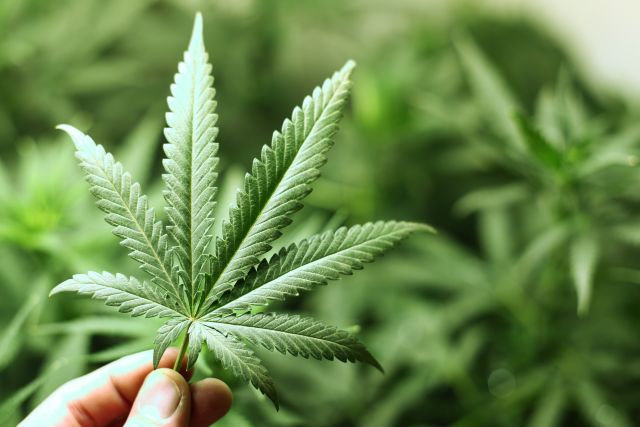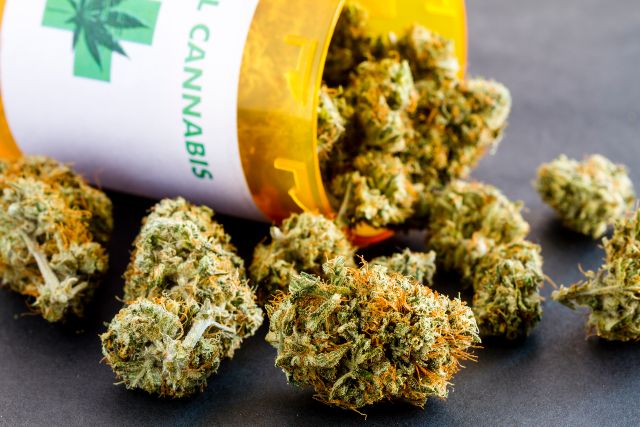Assessing Modern Drug Detection Methods
With recreational and medical marijuana now legal in many jurisdictions, a pressing question arises: can law enforcement effectively and fairly identify impaired drivers under its influence? While alcohol impairment can be quantified with breathalyzers, determining marijuana impairment on the roadside isn’t as straightforward. The need for reliable detection is amplified by concerns that legalization could lead to an increase in drivers who are under the influence of marijuana, which could potentially pose safety risks on the roads.
The tools and technology for detecting marijuana impairment have not advanced as quickly as the laws legalizing cannabis. Police officers currently do not have a reliable equivalent to the alcohol breathalyzer for marijuana. This issue is crucial because it affects public safety, legality, and personal freedoms. To enforce DUI laws for cannabis effectively, law enforcement agencies need accurate testing methods. However, developing such a device is challenging due to the complex way THC interacts with the human body.
As we navigate this challenging landscape, a deep understanding of the legalities surrounding DUI charges becomes invaluable. The Benjamin Law Firm, LLC has extensive experience navigating DUI cases involving marijuana and other mind-altering drugs, which presents a challenging landscape that requires a thorough understanding of the legalities.

Understanding Traffic Stops for Suspected Marijuana Use
A routine traffic stop becomes more complex when marijuana impairment is suspected. Marijuana legalization is significantly changing law enforcement practices. Officers use breathalyzers to detect alcohol impairment, but detecting marijuana impairment is different.
During a stop, certain behaviors may indicate drug use, such as delayed reaction times, difficulty following instructions, or visible disorientation. These cues contribute to an officer’s assessment and whether there’s probable cause to believe someone is driving under the influence of drugs.
Unlike alcohol, where a breathalyzer can quickly gauge impairment, detecting marijuana impairment still poses challenges. The differences are substantial because THC, marijuana’s psychoactive component, does not have a direct correlation with impairment levels like alcohol does.
There’s an ongoing debate about whether a reliable cannabis breathalyzer is possible. Efforts are being made to adapt alcohol detection systems, but accurately measuring THC levels is complicated due to legal and biological factors.
As cannabis laws evolve, so will the methods used by law enforcement. While science works on a concrete solution, officers will continue using their training and field sobriety tests and waiting for a tool that measures marijuana impairment as reliably as alcohol breathalyzers.

Current Technologies for Detecting Marijuana Impairment
Accurately detecting marijuana impairment on the roadside is challenging, especially as cannabis legalization spreads. Traditional methods for measuring alcohol intoxication, like breathalyzers, don’t work well for marijuana detection. However, several methods are currently being explored and implemented to address marijuana impairment on the roadside:
- Marijuana Breathalyzers: One emerging technology is a marijuana breathalyzer, which measures THC in a driver’s breath. These devices offer promise for indicating recent use rather than past consumption that no longer impacts impairment. However, there are nuances in correlating THC levels with impairment due to individual tolerances and variations in how the body metabolizes THC.
- Drug Recognition Experts (DREs): A drug recognition expert is a specially trained officer who assesses suspected impaired drivers through evaluations, including physical examinations and psychomotor tests. Although DRE assessments can be subjective and reliant on the officer’s training and interpretation, they currently play an integral role in identifying drug-impaired driving.
- Alternative Technologies: Other technologies include oral fluid testing with devices like Dräger DrugTest 5000. An oral fluid test looks for the presence of drugs in saliva and can detect recent drug use. While less invasive, this roadside chemical test must be corroborated with a THC blood test for court admissibility and can vary in sensitivity.
Despite advancements in technology, detecting marijuana impairment remains challenging. Unlike alcohol, where blood alcohol content (BAC) provides a clear indication of impairment, the relationship between THC concentration and impairment is less straightforward. As a result, the search for a reliable and enforceable standard continues.
Legal Implications of Marijuana DUIs
Driving under the influence of marijuana, often referred to as a marijuana DUI, presents complex legal challenges. Consequences for those found guilty can include:
- Fines
- Jail time
- Suspension of driver’s license
The severity of legal consequences often depends on the jurisdiction, the driver’s past record, and whether there was any other dangerous behavior on the road.
Criminal defense strategies in these cases may involve challenging the methods used to determine impairment. So, it’s paramount for drivers charged with a marijuana DUI to be aware of their legal rights and the potential ramifications of a conviction. The legal system strives to balance public safety with fair outcomes for the accused. In such a delicate legal environment, informed legal representation is key to navigating a drugged driving charge.
If you’re dealing with these charges, it’s essential to find a skilled legal advisor who understands the complexities of marijuana-related DUI offenses. Attorneys with experience in this area, such as those at the Benjamin Law Firm, LLC, can often provide strategies to challenge the evidence presented.

Defense Strategies for Marijuana DUI Charges
Marijuana-related DUI charges can be complicated, involving legal details that can be hard to untangle. It’s essential to recognize the possibility of human error in these cases. The accuracy of testing methods is often questioned, giving us opportunities to develop defense strategies. As legal defenders, we work through the complex regulations to challenge the evidence presented against our clients. Some common defenses include the following:
- Inconsistencies in the Testing Procedures: We thoroughly examine the testing procedures used during the arrest in our defense tactics. A marijuana breathalyzer may still be in development, and currently, police might rely on blood or saliva tests to detect marijuana. However, these tests can be fraught with procedural mistakes. We question:
- The timing of the test
- The calibration of the equipment
- The officer’s adherence to drug testing protocols
- Roadside Sobriety Tests: Field sobriety tests present another avenue for defense, given their reliance on subjective judgment. We critique the conditions under which the tests were administered and whether any external factors could have influenced the results.
By meticulously reviewing each step of your encounter with law enforcement, we build a robust defense, highlighting any oversights or breaches in the procedure. We customize a marijuana DUI defense strategy based on current marijuana laws and regulations to suit your unique circumstances.
Navigating Marijuana DUIs with Professional Legal Help
DUI cases involving marijuana are complex and difficult to understand. It is hard to determine exactly how impaired someone is from marijuana use, which makes these cases legally complicated. In such complex cases, having a skilled lawyer on your side is crucial.
We understand these challenges well at the Benjamin Law Firm, LLC. We’re here to support you, protect your rights, and help clarify the uncertainties surrounding marijuana DUI charges.
If you’re dealing with a marijuana DUI case, you’re not alone. Seeking professional legal assistance is not just important; navigating this complex legal terrain is necessary. Contact us for a consultation, and let us guide you through this challenging situation with the care and skill it requires.
















